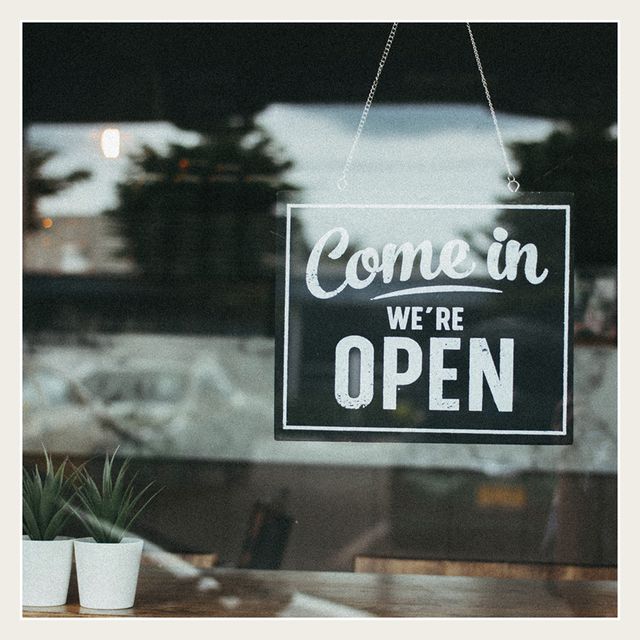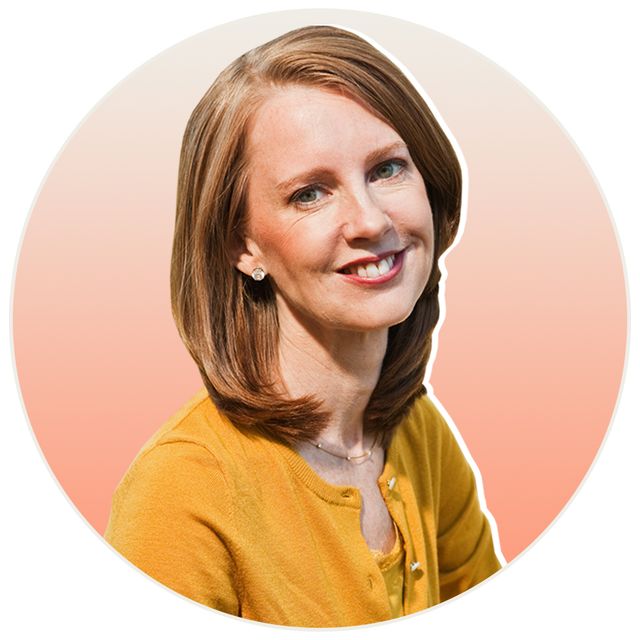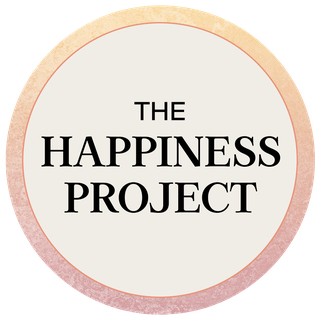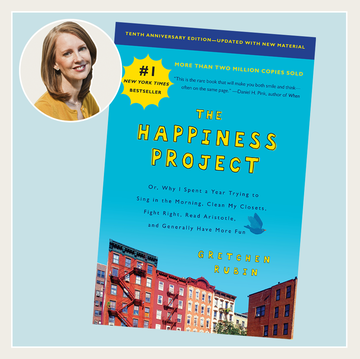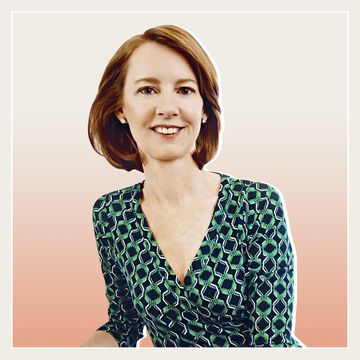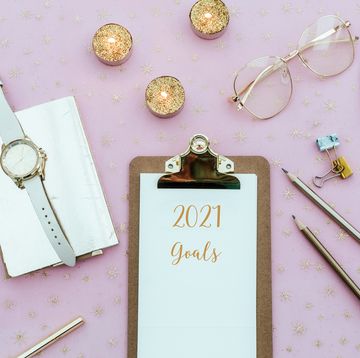Gretchen Rubin is the bestselling author of several books, such as Outer Order, Inner Calm and The Happiness Project, about how to be happier, healthier, and more productive. She also hosts the Happier with Gretchen Rubin podcast. For Oprah Daily, she weighs in on how we can all find a little bit of calm...even during a pandemic. This week, she answers a few reader questions.
Chances are, you or someone you know has considered—or, perhaps even made—a major life change in the past year and a half. Maybe you’re thinking about leaving your tiny city apartment for a more a spacious home in the suburbs. Or perhaps you’re mulling over the idea of quitting your job without any set plans. Or you could be contemplating whether your long-term relationship has run its course.
Whatever big life decision you’re considering, you’re not alone. The U.S. Postal Service processed nearly 36 million change-of-address requests last year, while home sales in 2020 hit the highest level since 2006, according to the National Association of Realtors. Meanwhile, a record-breaking 4 million people quit their jobs in April—a number that has remained nearly as high every month since then, according to the Bureau of Labor Statistics. Not to mention that in the 2020 edition of Match’s annual Singles in America report, more than half of respondents said they’re prioritizing dating, while jewelers have described double-digit increases in engagement ring sales, as reported by the Washington Post.
With that in mind, we posed the following question to readers on Facebook and Instagram: “Are you in the midst of making a big change? If so, what is causing you the most anxiety...and why?”
Unsurprisingly, it generated a lot of responses (so many, in fact, that I'll be answering a few more in the next installment of this column), with many expressing concern over a significant change at work. I heard from people who are switching career paths, retiring or considering retirement, launching their own businesses, going back to school after decades in the workforce, reducing or expanding their hours, and more.
We make life-altering decisions all the time, of course, but the extraordinary disruptions caused by the Covid-19 pandemic appear to have prompted many people to step back and ask themselves big questions. Am I doing what I want to be doing? Am I spending my time in a way that’s fulfilling? That’s to be expected: Studies have shown that natural disasters and other traumatic events can spur people to make big changes as a result of seismic shifts in how we think and relate to the world.
While the pandemic has brought tremendous suffering and hardship, it has also offered different possibilities. For some, enhanced unemployment benefits mean the opportunity to look for different work. Others are embracing work life with more flexibility, less time on the road, and more time spent in yoga pants. And others are finally acknowledging a big dream that had been pushed aside in the tumult of everyday life.
Ahead, I’ve addressed three of the most common work-related changes and concerns we’ve received from readers to date.
I’m starting a new job after 18 years. Will it begin with a bang or epic fail? —Tracy D. Trujillo from Palm Desert, California
Congratulations! Starting a new job is exciting, of course, but it can also seem intimidating. In fact, nearly 80 percent of working professionals experience nerves when starting a new job, according to a LinkedIn survey. For starters, there are so many new names, faces, procedures, and programs to learn, as well as so much new information to absorb—all of which, thanks to the pandemic, might be happening strictly through video and conference calls.
As you jump into your new position, beware of setting up a false deadline that suggests that from the start, you’ll either be a big success or a big failure. And beware of setting up a false choice that suggests that if you’re not a big success, you’re an epic fail.
The reality is that when we start a new job, we have a period of learning when we’re figuring things out. If you set unrealistically high expectations for yourself at the beginning, you’ll likely feel even greater discouragement by the natural challenges of starting a new position. So instead of worrying about everything you don’t know, focus on arriving with plenty of thoughtful questions instead. That could include: What does success look like in my role? What should I be able to do by the end of the first month, three months, six months? What’s the usual process for this?
Not only will this indicate to your new boss that you're prepared and proactive about learning new skills and systems, but it’ll also help you feel like you have a greater understanding of your new workplace. And when you make a mistake—and that will happen—take the time to examine what went wrong and how you can ensure you get it right the next time.
Equally important: Get to know the people around you. Not only will work friendships help you better understand the company culture and potentially improve job performance, but it’ll also make work more enjoyable. If you’re on the shy side, ask your boss to introduce you to the people you’ll work with most closely, then offer to take a walk together or buy them a cup of coffee to get to know them better.
And maybe it’s just me, but I find that every time I start a new job, I’m absolutely exhausted for the first few weeks. I remember telling a friend, “This new job is so tiring that I’m going to have to start going to bed at 8:00 p.m. every night.” These days, we’re all dealing with a lot of uncertainty and disruption—even if we haven’t switched jobs. So make sure to find some time for yourself, whether that’s taking a 30-minute walk, reading a captivating new book, catching up on your favorite TV show, whipping up a trusty comfort food, or working on a challenging jigsaw puzzle.
I’m going back to school, and I’m almost 40. I ask myself "What was I thinking?" at least once a day. —Bethan Jones from Boston, Massachusetts
Even if it doesn’t always feel like it—which, by the way, is normal—the truth is you’re taking an exciting step. In fact, while you may be questioning your decision to return to school, research suggests that more people regret what they didn’t do than what they did do—even if those decisions didn’t turn out well. Not to mention that people regret not taking the steps that would allow them to live up to their full potential.
Instead of thinking about all the things that could go wrong, try and focus on what motivated you to go back to school in the first place. To do so, write down three reasons why you wanted to return to school (for example, you'll be better able to advance in your job, you'll finally be able to pursue a new passion, or you'll be in a deeply stimulating environment) and place that list in a spot where you'll see it daily. (Think: next to your bathroom mirror, on your refrigerator, even on your bedside table.) Not only will this motivate you to continuously keep moving forward, but it'll also help keep things in perspective on days when you're feeling particularly unsure, anxious, or discouraged.
You can also take heart in the following: Forty percent of college students are 25 or older, according to the National Center for Education Statistics, and studies have shown that adult learners tend to be happier and more successful than their younger counterparts. That's likely a result of the skills, experience, and sense of responsibility that you've developed through years of personal and professional development.
And, of course, keep in mind that even if you’re feeling some doubt now, in the future, it’s very likely that you’ll be happy that you pushed yourself to take this big step.
I’m anxious about leaving the career path that I feel I’m supposed to be on in order to start my own business. —Leah Penrose from Richmond, British Columbia
Congratulations! You’re pursuing a big dream. Several years ago, hospice nurse Bronnie Ware posted about the five most frequent regrets that people shared at the end of their lives. The most common regret? “I wish I’d had the courage to live a life true to myself, not the life others expected of me.”
So, when faced with a difficult decision, there are a few key questions I often ask myself:
- Does this decision help me to follow my personal commandment to "Be Gretchen?" (Of course, everyone should substitute their own names!)
- When I contemplate a particular course of action, do I feel energized or drained?
- Is a particular course of action that allows me to expect more from myself—meaning, it’s scary in a positive way, one that will allow me to grow? Or does this course of action mean I’m not accepting myself—meaning, it feels wrong for me in a way that I should respect?
Perhaps most importantly, though, I remind myself to “Choose the bigger life.” Of course, what qualifies as the “bigger life” is different for everyone, but whenever I frame a choice in this way, it always helps me see the right answer, loud and clear. And for you, it sounds like the “bigger life” might mean starting your own business. Good luck!

Gretchen Rubin is the bestselling author of several books, such as Outer Order, Inner Calm and _The Happiness Project, about how to be happier, healthier, and more productive; she’s also a CBS News Contributor. On her popular, award-winning podcast Happier with Gretchen Rubin, she discusses happiness and good habits with her sister Elizabeth Craft.
